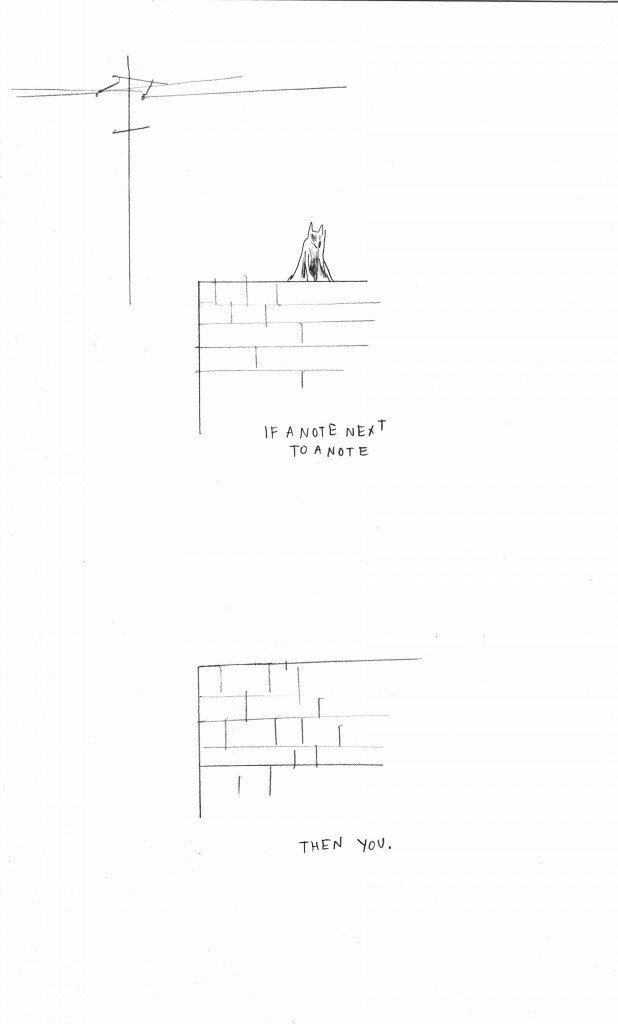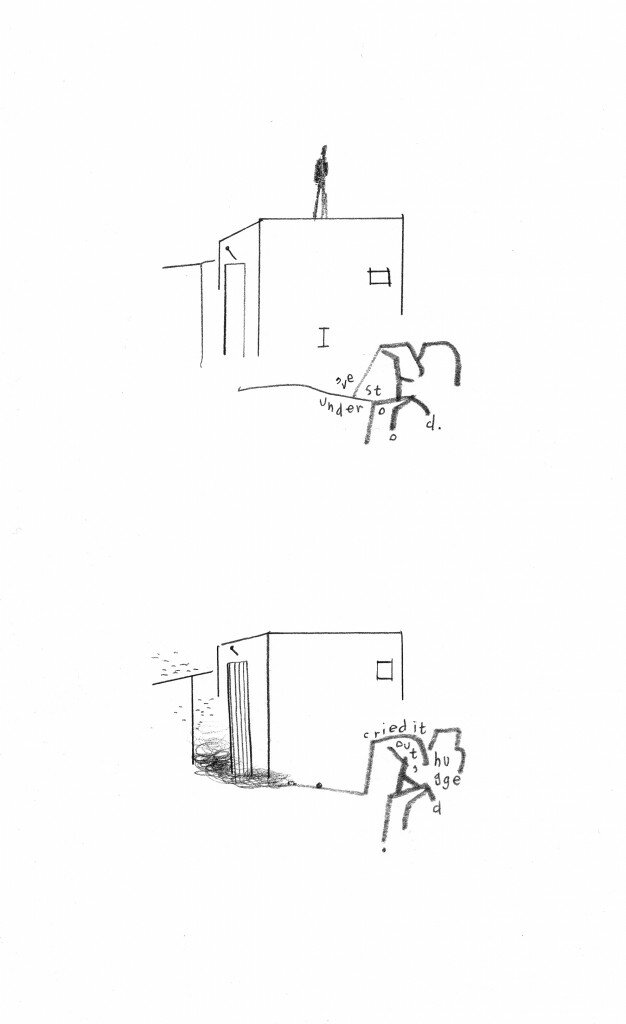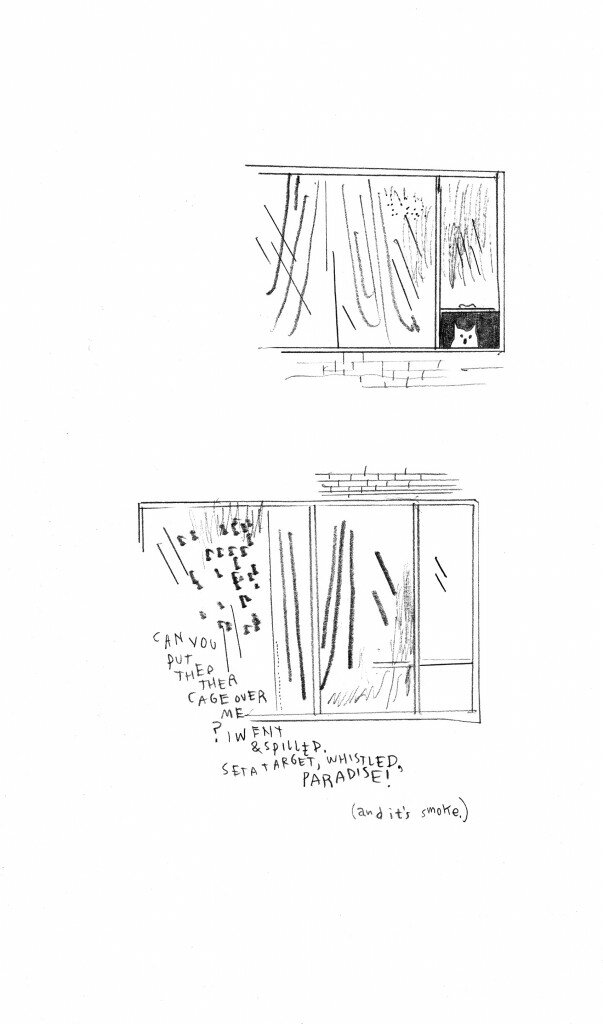I.
How can we define the philosophy of pragmatism? What is the relationship between the philosophy of pragmatism and the poetics of John Ashbery? Is there one? Ken McClelland cites Cornel West’s citation of C.I. Lewis as “being one of the best characterizations of pragmatism ever formulated” (Opening Truth 12). Lewis writes,
Pragmatism could be characterized as the doctrine that all problems are at bottom problems of conduct, that all judgments are, implicitly, judgments of value, and that, as there can be ultimately no valid distinction of theoretical and practical, so there can be no final separation of questions of truth of any kind from questions of the justifiable ends of action. (qtd. in McClelland 12)
McClelland goes on to comment that, “with the words, ‘the justifiable ends of action’ in mind, we clearly see that pragmatism’s philosophical impulse is inextricably tied to temporal consequences, with the idea that the future is of ethical significance” (12). McClelland then cites Dewey’s essay, “The Development of American Pragmatism,” in a long block quote, an excerpt of which reads, “The doctrine of the value of consequences leads us to take the future into consideration. And this taking into consideration of the future takes us to the conception of a universe whose evolution is not finished, of a universe which is still, in James’ term “in the making,” “in the process of becoming,” of a universe up to a certain point still plastic” (qtd. in McClelland12-13).
This notion of the universe “in the making” and “in the process of becoming” might resonate with readers of John Ashbery’s poetry, a practice of art that, in the able and nimble hands and mind of Ashbery, is constantly in flux, in process, suggesting a seemingly irrational “lack of coherence” that in Ashbery, as William Watkin writes, “does not deny a lack of cohesion” (187). As Watkin points out,
it is almost always the case that within his poetic units the semantic short-circuiting at the level of coherence is made up for by the two key factors of cohesion which often serve to undermine thematic semantics: lexical groupings and syntactic process. (187 my italics)
This “processual aesthetic” of Ashbery’s poetry is later described by Watkin as “a process of putting down and moving on” (214). And it is this process of becoming, noted by Dewey in terms of a characteristic of the future, and therefore in terms of the primary orientation of the philosophy of pragmatism, that Ashbery embodies in his poetic praxis. Ashbery’s work is a radically open-ended language game (language games in the plural seems more appropriate), that seems to give one the experience, through language, of the future in the immediate process of becoming, of things beyond our awareness coalescing, forces turning and tuning up, like a great orchestra just about to begin, as we sit at the edge of our seats and experience
The great, formal affair[…]beginning, orchestrated,
Its colors concentrated in a glance, a ballade
That takes in the whole world, now, but lightly,
Still lightly, but with wide authority and tact. (Ashbery 427)
Better yet, as Ashbery himself has said, first quoting an essay by Borges entitled, “The Wall and the Books,” then commenting on it,
‘Music, states of happiness, mythology, faces molded by time, certain twilights in certain places—all these are trying to tell us something, or have told us something we should not have missed or about to tell us something. The imminence of the revelation that is not yet produced is, perhaps, the aesthetic reality.’ The imminence of a revelation not yet produced is very important and hard to define in poetry and probably is the source of some of the difficulty with my own poems. But I don’t think it would serve any useful purpose to spare myself or the reader the difficulty of that imminence, of always being on the edge of things. (qtd. in Hubbard my italics)
“The imminence of a revelation not yet produced” is a remarkable formulation for describing the process of the future unfolding, and it is what I hope to signify by the term the “pragmatist sublime.” Such a phrase (“the imminence…”) conjures images of openings, or landscapes glimpsed, waterfalls or canyons, suddenly or slowly, possibilities rising up with inexhaustible and astonishing energy, potentials parting like curtains to reveal further potentials, more dazzling drawing rooms, a hall of mirrors of what-may-come-next. This is the world of Ashbery; and it is also the world of William James, one of the founders of pragmatism, who wrote in Pragmatism: A New Name for Some Old Ways of Thinking, (a book that David Herd has called “a guidebook to American poetics before and since” (13))
But if you follow the pragmatic method, you cannot look on any such word as closing your quest. You must bring out of each word its practical cash-value, set it at work within the stream of your experience. It appears less as a solution, then, than as a program for more work, and more particularly as an indication of the ways in which existing realities may be changed. (28 his italics)
“Pragmatism,” James writes a paragraph later, “unstiffens all our theories, limbers them up and sets each one at work” (28). The same can be said, of course, for Ashbery’s poetry, and also for our experience, when we are more sensitized to it. Indeed, it is one of Ashbery’s greatest virtues as a writer that, in the way which Gunter Leypoldt describes Martha Nussbaum’s take on Henry James – “moral intelligence….understood as a heightened perception of complexity…[an] ethical progress [becoming] a question of improving our aesthetic powers of discrimination” – Ashbery augments our powers of feeling, perception and imagination, placing us more immediately within the variety of contexts which constitute our world (Leypoldt 146). Ashbery, like both James brothers, makes our experience more powerful, more intense, more interesting, more enriching.
This is what David Herd means when discussing Ashbery’s “poems of occasion” – the notion of the “defining Ashberyan ambition” being “to write the poem fit for its occasion,” or “to achieve a poem appropriate to the occasion of its own writing” (7, 10). It is the idea that currently, as I type, there are more than ten books situated in various alignments on my desk: books about the New York School of poets, books about Richard Rorty, books about Ashbery, and three books in Spanish, one of which I have to translate for a Spanish exam in order to graduate from my master’s in English program at the University of Toledo; there is an orange washrag near the books, a knife coated with stale hummus, a phone peeping out from behind a stack of articles; there are trees outside the window, their leaves, to paraphrase Ashbery in “As One Put Drunk into the Packet-Boat” “yellowed by the sun”; the sounds of cars driving on the road in front of my apartment, the refrigerator in the kitchen humming, a guitar leaning against a bookcase, etc. All this is part of the “occasion” of which I write right now (not to mention the culture(s) of everything in my apartment, lurking behind or afore everything, making everything somehow a part of a disjointed but connected picture) – and it is this richness and plurality of detail that Ashbery, more than any American poet (with the exception of Whitman, Ashbery’s primary Bloomian precursor), drenches his poems in and with.
This notion of the occasion, written about wonderfully and helpfully by Herd, is what William James also intuits with astonishing insight, returning our thought back to us with Emersonian “alienated majesty,” when he writes in his deservedly famous chapter in Principles of Psychology, “The Stream of Thought,”
The traditional psychology talks like one who should say a river consists of nothing but pailsful, spoonsful, quartpotsful, barrelsful, and other moulded forms of water. Even were the pails and the pots all actually standing in the stream, still between them the free water would continue to flow. It is just this free water of consciousness that psychologists [Ashbery might say poets as well] overlook. Every definite image in the mind is steeped and dyed in the free water [the occasion] that flows round it. With it goes the sense of its relations, near and remote, the dying echo of whence it came to us, the dawning sense of wither it is to lead. The significance, the value, of the image is all this halo or penumbra that surrounds and escorts it,- or rather that is fused into one with it and has become bone of its bone and flesh of its flesh; leaving it, it is true, an image of the same thing it was before, but making it an image of that thing newly taken and freshly understood. (255)
Therefore, as James writes earlier in the same chapter, “The truth is that large tracts of human speech are nothing but signs of direction in thought” (252-253). James, like Ashbery, redescribes the climate of our mental environments; in so doing, he gives us, as Ashbery does, a more nuanced, more complex, richer sense of who we are and how we are. James, like Ashbery, enlarges us.
II.
So how do James and Ashbery achieve such a powerful effect? How do we understand the consequences of this effect? The answer to the former question is, of course, their language; for, as McClelland has written, “Experience is linguistic top to bottom (and side to side).” (Opening Truth 20) The answer to the latter question demands that we now introduce the figure of Richard Rorty, a neopragmatist whose work sheds incredible light on Ashbery’s poetic praxis, just as Ashbery’s poetic praxis embodies those pragmatist doctrines as mentioned above, just as James’s work sheds incredible light on Ashbery. But what is it, more specifically, about Rorty’s philosophy, or even his vision as a thinker, that elucidates so well what Ashbery is doing, or Ashbery’s vision as a poet? More concisely, How does Rorty’s revolutionary philosophy help us understand Ashbery’s revolutionary poetry? What does it mean to write revolutionary poetry or philosophy?
Let’s begin with what many have deemed an important aspect of Rorty’s thought: his notion of metaphoric redescription as inquiry. What is “metaphoric redescription as inquiry”? Christopher J. Voparil writes,
Under different names this work of redescribing was a part of Rorty’s thinking since his earliest published work, where he calls attention to the fact that “any metaphysical, epistemological, or axiological arguments can be defeated by redefinition” – the pihlosopher’s ability to “change the rules” of the game largely by altering the relevant criteria. (33-34)
This approach, Voparil continues, “looks to the imagination, rather than to inference” in order to recontextualize, a process that is “not unlike what takes place in Kuhnian periods of revolutionary science” (34). And seismic shifts in culture, Kuhn and Rorty might say, happen not through logical argument, but through a different style of imagining and imagination, that reweaves contexts into new, revolutionary tapestries. This has much to do with James’s notion of temperament, as well as Harold Bloom’s notion of the agon of influence. James writes in Pragmatism,
The history of philosophy [and poetry] is to a great extent that of a certain clash of human temperaments[…]Of whatever temperament a professional philosopher is, he tries, when philosophizing, to sink the fact of his temperament. Temperament is not conventionally recognized reason, so he urges impersonal reasons only for his conclusion. Yet his temperament really gives him a stronger bias than any of his more strictly objective premises. (8-9)
And Bloom, whose lifework might be said to be involved with developing a thickly pataphysical and Freudian account of the process of metaphoric redescription, writes (calling redescription “revisionism”),
Poetic Influence – when it involves two strong, authentic poets, – always proceeds by a misreading of the prior poet, an act of creative correction [redescribing] that is actually and necessarily a misinterpretation. The history of fruitful poetic influence, which is to say the main tradition of Western poetry since the Renaissance, is a history of anxiety and self-saving caricature, of distortion, of perverse, willful revisionism without which modern poetry as such could not exist. (30)
The notion of redescription thus allows us to somehow hold in our minds the paradox that there is no precedent for a Shakespeare, a Whitman, or an Ashbery, just as there is no Shakespeare, Whitman or Ashbery without the tradition they inherited. The same can be said of other world-changers, figures like Einstein or a Darwin; or as Rorty writes,
Hobbes did not have theological arguments against Dante’s world-picture; Kant had only a very bad scientific argument for the phenomenal character of science; Nietzsche and James did not have epistemological arguments for pragmatism. Each of these thinkers presented us with a new form of intellectual life, and asked us to compare its advantages with the old. (qtd. in Voparil 35)
But redescription, as Voparil points out, is not just a “method of inquiry”: citing Rorty, he writes, “’speaking differently, rather than arguing well,’ on [Rorty’s] view is ‘the chief instrument of cultural change.’ In a word, redescription is political; redescriptions have the power to change our minds” (35). Here is Rorty, writing about redescription in Contingency, Irony, and Solidarity:
The method is to redescribe lots and lots of things in new ways, until you have created a pattern of linguistic behavior which will tempt the rising generation to adopt it, thereby causing them to look for appropriate new forms of nonlinguistic behavior, for example, the adoption of new scientific equipment or new social institutions. (9)
An awareness of this method is an awareness, Rorty might say, of the contingency of language – that language has no intrinsic nature – and therefore of “a picture of intellectual and moral progress as a history of increasingly useful metaphors rather than of increasing understanding of how things really are” (Contingency 9).
III.
We find this sentiment – that intellectual and moral progress happens as a result of new vocabularies replacing old vocabularies – articulated over and over in Ashbery’s poetry. In fact, I would hazard the argument that, in the terms of William James, metaphoric redescription is in Ashbery’s “voluntary thinking” a “topic or subject about which all the members of the thought involve” (259). James goes on to write in his Principles that
Half the time this topic is a problem, a gap we cannot yet will with a definite picture, word, or phrase, but which, in the manner described some time back, influences us in an intensively active and determinate psychic way. Whatever may be the images and phrases that pass before us, we feel their relation to this aching gap. To fill it up is our thought’s destiny. Some bring us nearer to that consummation. Some the gap negates as quite irrelevant. Each swims in a felt fringe of relations of which the aforesaid gap is the term. Or instead of a definite gap we may merely carry a mood of interest about with us. Then, however vague the mood, it will still act in the same way, throwing a mantle of felt affinity over such representations, entering the mind, as suits it, and tingeing with the feeling of tediousness or discord all those with which it has no concern. (259)
Again, notice how James, through his own metaphoric redescription, enlarges our understanding about what our individual interests mean, how they feel, how they operate within the idiosyncratic consciousness that forms the matrix of our deeply private selves. This is exactly what Ashbery achieves in his greatest works, for his poems make redescription their content, even as their form and process enact redescription as their primary way of unfolding.
Metaphoric redescription is in Ashbery’s earliest “self-portrait” in Some Trees, in “The Picture of Little J.A. in a Prospect of Flowers,” where he writes,
Still, as the loveliest feelings
Must soon find words, and these, yes,
Displace them, so I am not wrong
In calling this comic version of myself
The true one. (14)
It’s in “Illustration,” also in Some Trees:
Much that is beautiful must be discarded
So that we may resemble a taller
Impression of ourselves. (25)
The sense of the new replacing the old can be found in The Tennis Court Oath, in “White Roses”:
So put away the book,
The flowers you were keeping to give someone:
Only the white, tremendous foam of the street has any importance,
The new white flowers that are beginning to shoot up about now. (66)
And the sense of the contingency of language can be found at the opening of “A Last World”:
These wonderful things
Were planted on the surface of a round mind that was to become our present time.
The mark of things belongs to someone
But if that somebody was wise
Then the whole of things might be different
From what it was thought to be in the beginning, before an angel bandaged the field glasses. (83)
We find the sentiment that there are no neutral starting points for thought in “The Eccliast” in Rivers and Mountains: “There was no life you could live out to it end / And no attitude which, in the end, would save you” (135). And perhaps one of the most famous of Ashbery’s “utterances” in terms of new vocabularies replacing old vocabularies can be found in “Clepsydra,” in a passage which reads,
Each moment
Of utterance is the true one; likewise none are true,
Only is the bounding from air to air, a serpentine
Gesture which hides the truth behind a congruent
Message, the way air hides the sky, is, in fact,
Tearing it limb from limb this very moment: (140)
But these are only fragments; and what we find, when reading through Ashbery’s ouvre, is that these are not isolated incidents, but part of a larger pragmatic temperament that shapes the poems in such a way as to suggest, in the unfolding of the poem’s inner logic, the redescription of what it means to be alive through a new vocabulary replacing an old vocabulary.
Quickly, What was the old vocabulary? That depends on the critic. Bloom would say Stevens and Whitman; Ben Hickman would say the English tradition; David Herd cites Randall Jarrell’s description of Robert Lowell’s poetry as
the coiling violence of its rhetoric, the harsh and stubborn intensity that accompanies all its verbs and verbals, the clustering stresses learned from accentual verse, come from a man contracting every muscle, grinding his teeth together till his shut eyes ache. (qtd. in Herd 33)
Herd goes on to write that,
The way Ashbery, along with O’Hara and Koch, solved the problem of not being Lowell was by reading widely in pursuit of alternatives, revitalizing American poetry as they did so – and in the time-honoured fashion of Whitman, Eliot, Pound and Stevens – by absorbing influences from elsewhere, France and Russia in particular. (35)
It does not concern my study here to delve too deeply into the impact of the French and Russian influences on Ashbery, as this has been chronicled elsewhere, especially in the work of Herd in regards to Pasternak’s influence on Ashbery. But I do want to stress that Ashbery is almost abnormally preoccupied with change, with what progress might mean, with the way in which change and progress and difference happen through metaphorically redescribing the world. To look at this issue more closely will require closer readings of the poems throughout his oeuvre. For the sake of this essay, I will be focusing on Ashbery’s first book, Some Trees.
IV.
If the majority of Ashbery’s work is concerned with the way in which the future, like a horizon, spreads out before us, (though we do not know which direction it will take us in), then we might say that each of his books presents various strategies for conveying this feeling to us aesthetically. In Some Trees, as Catherine Imbriglio has pointed out – though in the context of “closeted spaces” as opposed to the “revelation not yet produced” – this feeling is often transmitted via the notion of reticence, silence, and secretiveness – or, as David Shoptaw writes, “Some Trees is as remarkable for it excludes or slights as for what it represents” (19). Since we don’t know what the future will bring, it follows that we must be, to some extent, reticent, silent or secretive – reticent, because we don’t know what will happen, and therefore do not want to overstep our boundaries, not necessarily in a fearful or quietist way, but certainly in a vigilant way; silent, because perhaps in our silence we may become more attentive to what is about to happen; and secretive, the etymology of which suggests a hiddenness, and therefore an awareness that the future itself is secret, is hidden, is somehow magically undisclosed. This hiddenness has less to do with the cryptic way in which Some Trees “encodes a gay network of friends circulating among enemies and possible informants” (Shoptaw 20), and more with the cryptic nature of the future itself. Thus we read, in “Two Scenes,” (a title that itself betrays a reticence about being too specific, about naming; as Shoptaw points out, “nearly half [of the poems in Some Trees] indicate the form or mode of their poem” (19)):
I.
We see us as we truly behave:
From every corner comes a distinctive offering.
The train comes bearing joy;
The sparks it strikes illuminate the table.
Destiny guides the water-pilot, and it is destiny.
For long we hadn’t heard so much news, such noise.
The way was warm and pleasant.
“We see you in your hair,
Air resting around the tips of mountains.” (3)
For a long time I have wondered about the first line of the first poem in Ashbery’s first published collection: “We see us as we truly behave”. It troubles me, because Ashbery strikes me as such an anti-essentialist, an anti-foundationalist, a la Rorty, who would therefore be uncomfortable with notions such as Truth or a monolithically true perception. Therefore, I do not read the line as Imbriglio does, as “one totalizing visionary moment,” such a phrase being, as I deem it, an unhelpful oxymoron, as a visionary moment, according to Ashbery, would not and cannot be totalizing (279). I’d like to suggest that we posit that “to see us as we truly behave” is a way of saying, “when we are oriented towards the future, wondering what will happen to us, then we can “see us as we truly behave”, as most people are acting in such ways that suggest they are aware of their future and are making decisions in the present to realize what they hope for in the future. Going along with this interpretation – which implies that, even if we are oriented towards the future, we do not and cannot know what it will bring – is a sense of child-like wonder and magic in the poem, an almost forced naiveté, an enormous Joseph Cornell-like innocence. “From every corner comes a distinctive offering” we hear, and “The train comes bearing joy; / The sparks it strikes illuminate the table”. Furthermore, “Destiny guides the water-pilot, and it is destiny”, and “For long we hadn’t heard so much new, such noise.” Each line works with the lines before and after to create a tapestry of novelty, of exciting things occurring which are hard to place. The notion is repeated in the second stanza, in which we read,
This is perhaps a day of general honesty
Without example in the world’s history
Though the fumes are not of a singular authority
And indeed are dry as poverty. (3)
Ashbery is calling our attention to the unprecedentedness of the future, and he is conveying this notion to us through language that redescribes this feeling in a new way. The poem ends, “As laughing cadets say, “In the evening / Everything has a schedule, if you can find out what it is.” I do not read this line as suspiciously as Imbriglio does, as signifying a secrecy necessary because of Ashbery’s homosexuality, although I do find such a reading compelling. Nor do I read the poem, as Marjorie Perloff does, as a kind of fantastical polyphony of dream-logic – i.e. “Not what one dreams but how – this is Ashbery’s subject” (252). Again, Ashbery’s poems do suggest, as Perloff has written, the logic of a dream; but here it is a matter of emphasis; and I wish to emphasize that his poems also suggest, with a florabundance rarely exhibited, the multifariousness of conscious lived experience reflecting on the future. (Of course, this reflecting on the future is also a kind of dreaming; and in that sense my argument dovetails with Perloff’s.) The evening can be interpreted, then, not as a metonym for dreams, nor as a metaphor for a pernicious shadowy presence of homophobia, but rather as a trope for the future, when the darkness suggests a wide-openness, commensurate with the sublime expansiveness of contemplating a future that is already somehow happening, all the time, though in some ways unbeknownst to us.
We find this same reticence, secretiveness and silence evident in “Popular Songs,” which ends,
There is no way to prevent this
Or the expectation of disappointment.
All are aware, some carry a secret
Better, of hands emulating deeds
Of days untrustworthy. But these may decide.
The face extended its sorrowing light
Far out over them. And now silent as a group
The actors prepare their first decline. (4)
Here, we might say that “the face” is a trope for evening, for the horizon of the future, for it is a metaphor with, again, a certain wide-openness, a vastness that suggests the power of memory, feeling, imagination. (“Perhaps we ought to feel with more imagination” Ashbery writes later, in “The Recent Past” (136)). There is no way to prevent “this” – perhaps a pronoun referring, in its ambiguousness, to the ambiguity of the future – just as there is no way to live a life without disappointment. Everyone is aware of the powerful dangerous imminence of the future, but some, as Ashbery writes, “carry a secret / Better,” perhaps implying that for some, this awareness leads to powerful creations. But why the metaphor of the theater and acting in the last line? What does this calling our attention to artifice have to do with an awareness of the imminence of the future? Perhaps our very secretiveness makes us actors and actresses, acting a certain way on the surface, though all the time we are “nursing some private project” (Ashbery 125).
Ashbery’s reticence does not only manifest itself in lines that directly refer to the word “reticent,” such as the end of “As One Put Drunk Into a Packet-Boat,” where we read the oft-cited, “But night, the reserved, the reticent, always gives more than it takes” (428). Reticence is part of his overall strategy, as Imbriglio points out, and can be found in his willingness to supply us with details of a narrative, combined with his unwillingness to fill out these details into some kind of totalized story. We see this reticence about narrative in “Popular Songs,” a reticence about filling in the gaps, or the way in which gaps are filled; and we also find it in “A Boy,” a poem whose suggestiveness is far more powerful than its completeness. We also find it in “Album Leaf,” where Ashbery asks three questions –
What can we achieve, aspiring?
And what, aspiring, can we achieve?
What can the rain that fell
All day on the grounds
And the bingo tables? (12)
without directly answering them. Even in a poem like “The Instruction Manual,” where the narrative we are given, the picture of the world, feels somewhat complete, the poem is written in a tone of such ferocious irony that it is very difficult to read the overall picture of the poem as in a way a serious attempt at capturing totality. We might even say that Ashbery’s reticence plays into the astonishment of his images, for what makes Ashbery’s images so dazzling is their imaginative unexpectedness, their visionary unprecedented-ness, which seem to be the reward for being reticent, for waiting, and therefore exhibit the other side of reticence, which is boldness, courage, the willingness to adventure, to manifest in the greatest possible way the beauty of one’s own idiosyncratic character.
This reticence, which translates at times into the shocking novelty of Ashbery’s images, can be found in a wonderfully memorable way through Ashbery’s “The Picture of J.A. in a Prospect of Flowers,” a poem that begins with an epigraph from Pasternak that reads, “He was spoilt from childhood by the future, which he mastered early and apparently without great difficulty” (13). “Picture” is divided into three sections, and the first one begins,
Darkness falls like a wet sponge
And Dick gives Genevieve a swift punch
In the pajamas. “Aroint thee, witch.”
Her tongue from previous ecstasy
Releases thoughts like little hats.
“He clap’d me first during the eclipse.
Afterwards I noted his manner
Much altered. But he sending
At that time certain handsome jewels
I durst not seem to take offence.”
In a far recess of summer
Monks are playing soccer. (13)
The first stanza oscillates between images of reticence, wonder, and silence, combined with a cartoonish form of violence. Genevieve, who appears like a cartoon character, is punched “in the pajamas,” yet she is so taken by some “previous ecstasy” that she “releases thoughts” (assumed to be either words or cartoonish thought boxes) “like little hats.” Then Genevieve speaks, and mentions another trope for the future, an eclipse (perhaps the “darkness [falling] like a wet sponge”); a change in behavior on the part of Dick; and then a silence on Genevieve’s part about being punched. After we hear that Genevieve exhibits her own style of reticence, perhaps out of wonder at the “handsome jewels” given to her, we hear that “In a far recess of summer / Monks are playing soccer.” The images are juxtaposed so strangely and suddenly, there is a hilarious absurdity of the poem that seems to muffle the fact that the poem is also exorbitantly silent and almost abnormally reticent. For what better way of expressing unexpected silence than the implacable image of monks “in a far recess of summer” playing soccer?
The second stanza then takes these themes of reticence, wonder, and silence, along with the tonality and modality of cartoon violence, and changes into a meditation on re-description (“So far is goodness a mere memory / Or naming of recent scenes of badness”) which varies with a tonality and modality of fantasy (“as dirty handmaidens / To some transparent witch, will dream / of a white hero’s subtle wooing, / and time shall force a gift on each”). This makes sense philosophically, for a radical orientation towards the future will carry with it an emphasis on the imagination, since the future itself (“moral and intellectual progress”) is largely a product, Rorty might say, of what we imagine in the present. Yet a radical awareness of the future also has its costs, which we find out in the third stanza, where Ashbery’s philosophy of “acceping // Everything, taking nothing” seems to lead to an almost morbid trauma, where silence and revelation, like Elizabeth Bishop’s experience in “In the Waiting Room,” take on traumatic hues. In this situation, Ashbery imagines his past self as a “pale and gigantic fungus,” perhaps a metaphor for a certain kind of sickliness owing to a constant vigilance pertaining to what may come next. Yet the poem ends on a note of re-description again, where “only in the light of lost words / Can we imagine our rewards.” This suggests that only as new vocabularies replace old vocabularies (“lost words”), can we begin to imagine our aspirations and what these aspirations might lead to.
Shoptaw reads this ending differently. He writes,
Virtue, so the saying goes, is its own reward. For Ashbery, however, virtue is rewarded only retroactively, in the fame of published poems in which the past is irrevocably lost and recaptured: “And only in the light of lost words / Can we imagine our rewards.” As Proust says, in what becomes another encrypted moral for “Picture,” “the true paradises are the paradises that we have lost.” (28)
Yet I cannot help but feel that the locus of meaning for the last phrase in the poem pivots around the meaning of “lost,” which Shoptaw seems to interpret as something missing or absent that consequently produces nostalgia in the speaker, a nostalgia that allows the speaker to create or imagine a poem out of its longing. It’s really a matter of emphasis. Shoptaw does, importantly, draw our attention to the fact that Ashbery is not only a poet concerned with the future, but also one fascinated by nostalgia, by the past. Yet for all Ashbery’s interest in these matters, the ending of “J.A” has less do with nostalgia (“the light of lost words”) and more to do with dead metaphors (“the light of lost words”), which is to say, more to do with an emphasis on imagination than memory. I also wish to add to David Herd’s potent interpretation of “J.A.,” when he writes of the poem as “the self-conscious product of the various influences that constitute its aesthetic background” (45). Yes, the poem is that, but it is more as well: a meditation on the influences that helped to create it, as well as a meditation on the contingency of language itself, whereby virtue can be re-described as “stubbornness,” and a “comic version” of oneself can be designated (with irony) the “true one.” Perhaps our best interpretation of this ending comes from James Longenbach, who writes, “’Truth’ is not undermined by these realizations; it is reconceived [or re-described] by the adult Ashbery as a contingent quality even as his former self, frozen in the photograph, continues to think of it as permanent and unchanging” (92, my italics).
What is clear from all this is that pragmatism, as a philosophy oriented towards the future, and therefore towards an undisclosed, disclosing open-endedness, can be used in helpful ways to interpret the challenging but rewarding poetry of Ashbery. Thinkers like William James and Richard Rorty, as well as John Dewey, must be used to help us understand Ashbery’s important, influential, amazing poetics. For as Ashbery’s ouvre develops, we find new strategies, new genres, new ways of discussing the aesthetic power of the “revelations not yet produced.” And the more we can understand how Ashbery helps us to reach this remarkable pragmatist sublime, the more we can begin to understand what Borges called the “perhaps, the aesthetic reality,” (though one cannot help but feel that Ashbery would change this to “perhaps, an aesthetic reality”).
Works Cited
Ashbery, John. Collected Poems, 1956 – 1987. New York: Library of America, 2008. Print.
Bloom, Harold. The Anxiety of Influence: A Theory of Poetry. London: Oxford UP, 1975. Print.
Herd, David. John Ashbery and American Poetry. New York: Palgrave, 2000. Print.
Hubbard, Will. “In Which We Enter the Double Dream of Spring.” This Recording.com 27 April 2008. Web. 10 May. 2013.
Imbriglio, Catherine. “’Our Days Put on Such Reticence’: The Rhetoric of the Closet in John Ashbery’s Some Trees.” Contemporary Literature 26. 2 (1995): 249 – 288. Print.
James, William. The Principles of Psychology, Volume One. New York: Dover Publications, 1950. Print.
James, William. Pragmatism and Other Writings. New York: Penguin Books, 2000. Print.
Leypoldt, Gunter. “Uses of Metaphor: Richard Rorty’s Literary Criticism and the Poetics of World-Making.” New Literary History 39.1 (2008): 145 – 163. Print.
Longenbach, James. Modern Poetry After Modernism. New York: Oxford UP, 1997. Print.
McClelland, Ken. “John Dewey and Richard Rorty: Qualitative Starting Points.” Transactions of the Charles S. Pierce Society 44.3 (2008): 412 – 445. Print.
McClelland, Kenneth A. “Opening Truth to Imagination: The Pragmatism of John Dewey and Richard Rorty.” Diss. Brock University, 2006. Print.
Perloff, Marjorie. The Poetics of Indeterminacy. Princeton: Princeton UP, 1981. Print.
Rorty, Richard. Contingency, Irony, and Solidarity. New York: Cambridge UP, 2009. Print.
Shoptaw, John. On the Outside Looking Out: John Ashbery’s Poetry. Cambridge: Harvard UP, 1994. Print.
Chrisotpher Voparil and Richard Bernstein (ed.). The Rorty Reader. Malden: Blackwell Publishing Ltd. 2010.
Watkin, William. In the Process of Poetry The New York School and the Avant-Garde. London: Associated University Presses, 2001. Print.










